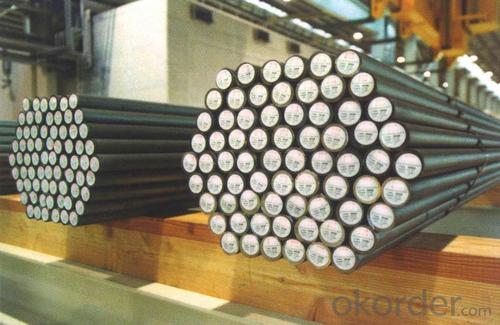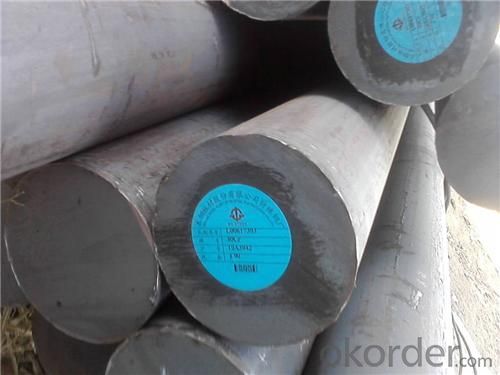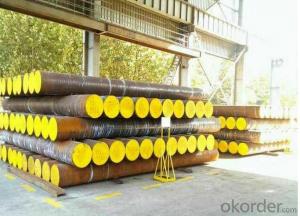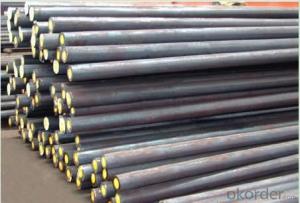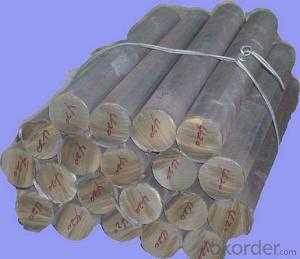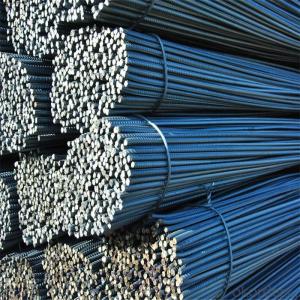Alloy Steel Cr40,Steel Material,40cr Steel Specification
- Loading Port:
- China main port
- Payment Terms:
- TT or LC
- Min Order Qty:
- 30 m.t.
- Supply Capability:
- 10000 m.t./month
OKorder Service Pledge
OKorder Financial Service
You Might Also Like
Item specifice
Alloy Steel Cr40,Steel Material,40cr Steel Specification
Product information:
| Alloy Steel Cr40,Steel Material,40cr Steel Specification | |||||||||
| 1.Specifications of 40Cr Steel | |||||||||
| Round bar | Diameter(mm) | Length (mm) | |||||||
| 20~800 | 3000~5800 | ||||||||
| Plate | Thickness(mm) | Width (mm) | Length (mm) | ||||||
| Max:800 | 205~800 | 2000~4000 | |||||||
| The specification can be customized. | |||||||||
| 2.Chemical compositon(%) of 40Cr Steel | |||||||||
| Standard | C | Mn | Si | Cr | Mo | P | S | ||
| Number | Ni | ||||||||
| GB | 42CrMo | 0.38~0.45 | 0.50~0.8 | 0.17~0.37 | 0.9~1.2 | 0.15~0.25 | ≤0.035 | ≤0.035 | ≤0.3 |
| AISI | 4140 | 0.40~0.45 | 0.75~1.0 | 0.15~0.35 | 0.8~1.1 | 0.15~0.25 | ≤0.035 | ≤0.040 | |
| JIS | SCM440 | 0.38~0.43 | 0.60~0.9 | 0.15~0.35 | 0.9~1.2 | 0.15~0.30 | ≤0.030 | ≤0.030 | ≤0.25 |
| EN (DIN) | 1.7225 | 0.38~0.45 | 0.60~0.9 | ≤0.40 | 0.9~1.2 | 0.15~0.30 | ≤0.025 | ≤0.035 | |
| 4.Heat treatment of 40Cr Steel | |||||||||
| Forging:1100~900°C | |||||||||
| Normalization:860~880°C | |||||||||
| Subcritical annealing:680~720°C | |||||||||
| Isothermal annealing:830~900 670x3h°C | |||||||||
| Hardening:830~860 oil | |||||||||
| Tempering:550~650°C | |||||||||
| 5.Machanical Properties | |||||||||
| Tensile str. (N/mm2):1080 | |||||||||
| Yield point (N/mm2):930 | |||||||||
| Elongation (%):12 | |||||||||
| Contraction (%):45 | |||||||||
| Impack work (J/cm2):63 | |||||||||
| Hardness (HB):217 | |||||||||
| 5.Characteristic of 40Cr Steel | |||||||||
| Chromium molybdenum high tensile steel with yield strength of 550N/mm2. | |||||||||
| Chromium renders steel oil hardenable and increase hardenability. | |||||||||
| Weldability suffers with increasing chromium content. | |||||||||
| High temperature strength and high pressure hydrogenation properties are | |||||||||
| promoted by chromium and molybdenum. | |||||||||
| Molybdenum significantly reduces temper brittleness. | |||||||||
Product show
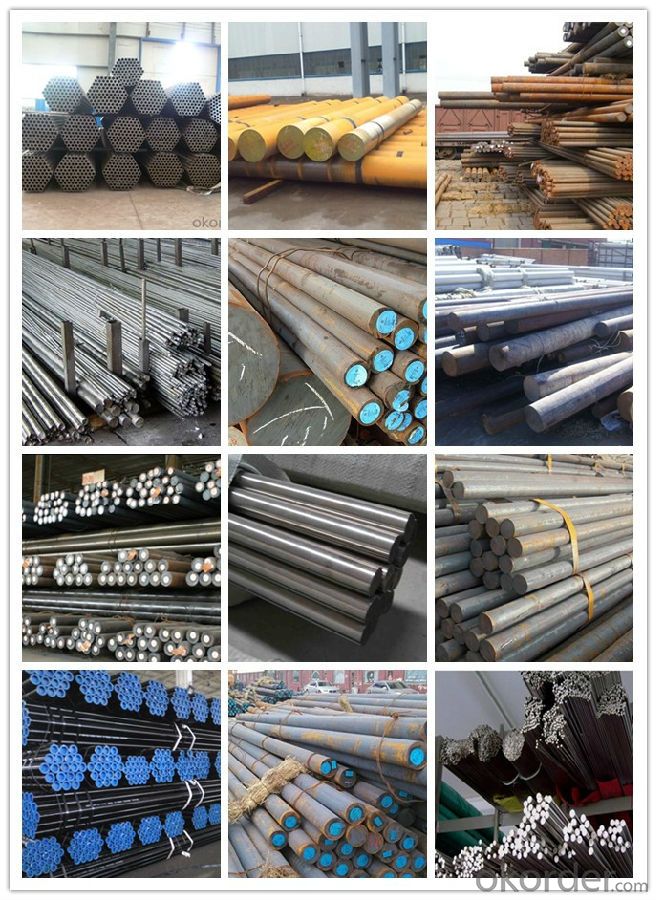
Workshop show
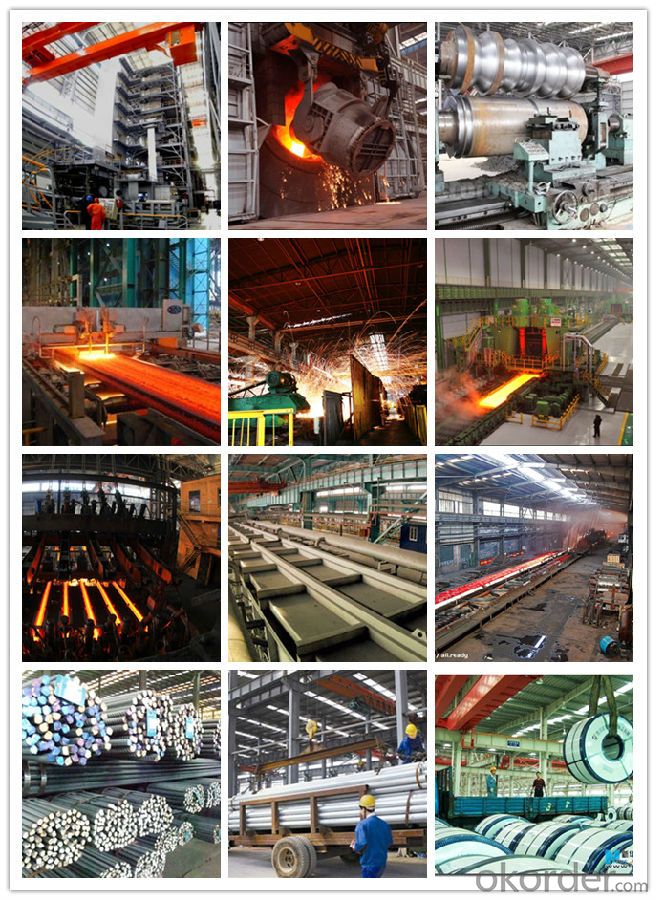
Our service:
-High manufacturing accuracy
-High strength
-Small inertia resistance
-Strong heat dissipation ability
-Good visual effect
-Reasonable price
Chose happens because of quality, then price, We can give you both.Additionally, we can also offer professional products inquiry, products knowledge train(for agents), smooth goods delivery, exellent customer solution proposals.Our service formula: good quality+good price+good service=customer's trust
SGS test is available, customer inspection before shipping is welcome, third party inspection is no problem.
40Cr steel, is a high quality alloy structural steel. The main components are 0.37-0.44 Si 0.17-0.37 Mn 0.50-0.80 Cr 0.80-1.10 C.
40Cr steel is used as a mechanical part and a variety of engineering components and contains one or more of the alloy elements of a certain amount of steel.This kind of steel is suitable for the heat treatment of metal, and the microstructure is uniform, bainite, or very fine pearlite after heat treatment.
So the 40Cr steel with wear consumption, chemical corrosion resistance, tensile strength, high elasticity, high pressure load, wear-resistant high strength, ceiling shock resistance, tear resistance, radiation resistance, high load and shock absorption, good performance.
Import of 40 Cr steel has better elastic recovery performance and better hardness and toughness, wear resistance, machinability is superior.
Used in metallurgy, mines, petroleum, automobile, building materials, sports, heavy machinery, large stamping equipment shock absorbing cushion, cushion block, a spring and a metal plate, pipe punching material mold, general machinery and equipment and other accessories cushion or damping effect is ideal material for mould spring.
- Q:Can special steel be used in the production of surgical implants?
- Yes, special steel can be used in the production of surgical implants. Special steel alloys such as stainless steel and titanium alloys are commonly used in the manufacturing of surgical implants due to their excellent biocompatibility, corrosion resistance, and mechanical properties. These materials provide the necessary strength, durability, and compatibility required for surgical implant applications.
- Q:How does special steel compare to other materials such as aluminum or titanium?
- Special steel boasts a unique set of advantages and characteristics when compared to materials like aluminum or titanium. Firstly, its exceptional strength and durability set it apart. With a higher tensile strength than aluminum and titanium, it is ideal for applications that require withstanding heavy loads or high-stress environments. This strength also ensures a longer lifespan by resisting wear and tear. Furthermore, special steel maintains its mechanical properties even at extreme temperatures. Unlike aluminum and titanium, which experience a significant decrease in strength at elevated temperatures, special steel retains its structural integrity, making it suitable for applications involving high temperatures or thermal cycling. In terms of cost-effectiveness, special steel often proves to be more affordable than titanium, especially in large-scale production. While aluminum is generally cheaper than special steel, it may lack the same level of strength or resistance to corrosion, limiting its applicability in certain industries. Additionally, special steel exhibits excellent machinability and can be easily formed into different shapes and sizes, allowing for greater design flexibility. This quality makes it suitable for various industries such as automotive, aerospace, construction, and manufacturing, where complex components or structures are required. Lastly, special steel showcases superior corrosion resistance compared to aluminum and titanium. It can be treated or coated to provide additional protection against rust and other forms of degradation, further extending its lifespan. In summary, special steel surpasses aluminum and titanium in terms of strength, durability, temperature resistance, and corrosion resistance. Its cost-effectiveness, machinability, and versatility make it a preferred material in various industries, where high-performance and reliability are crucial factors.
- Q:What are the different material selection factors for special steel?
- The different material selection factors for special steel include strength, corrosion resistance, heat resistance, machinability, weldability, and specific application requirements.
- Q:Can special steel be used for luxury goods?
- Yes, special steel can be used for luxury goods. Special steel, often known for its exceptional quality, durability, and unique aesthetic appeal, can be utilized in the production of high-end luxury goods such as watches, jewelry, and accessories. Its premium attributes and distinct characteristics make it an attractive choice for luxury brands seeking to craft exclusive and sophisticated products that cater to discerning customers.
- Q:How does special steel perform in terms of electrical resistivity?
- Special steel typically has a relatively high electrical resistivity, which means it offers greater resistance to the flow of electric current compared to other materials. This property makes special steel useful in applications where low electrical conductivity is required, such as in electrical resistors or magnetic cores.
- Q:What are the key alloying elements used in special steel?
- The specific application and desired properties determine the key alloying elements used in special steel. Some commonly used alloying elements in special steel are chromium, nickel, molybdenum, vanadium, tungsten, and cobalt. To enhance the steel's hardness, wear resistance, and corrosion resistance, chromium is often added. Nickel, on the other hand, increases the steel's strength, toughness, and corrosion resistance. Molybdenum is commonly used to improve the steel's high-temperature strength, resistance to creep, and resistance to corrosion by certain chemicals. Vanadium is added to increase the steel's strength, toughness, and wear resistance, especially at high temperatures. Tungsten is another element used to enhance the steel's high-temperature strength and wear resistance. Cobalt, on the other hand, is often added to improve the steel's strength and toughness, particularly at elevated temperatures. These alloying elements are carefully chosen and added in specific proportions to achieve the desired properties for various applications, including aerospace, automotive, energy, and tooling industries. By incorporating these alloying elements, special steel can be customized to meet specific performance requirements, making it suitable for a wide range of demanding applications.
- Q:Can special steel be used in the pharmaceutical industry?
- Yes, special steel can be used in the pharmaceutical industry. Special steel alloys, such as stainless steel, are commonly utilized in pharmaceutical equipment and manufacturing processes due to their corrosion resistance, high strength, and hygienic properties. These steel alloys are suitable for applications such as pharmaceutical storage tanks, piping systems, mixing vessels, and other critical components required for pharmaceutical production.
- Q:How is special steel used in the manufacturing of bearings?
- Special steel is used in the manufacturing of bearings due to its unique properties that make it suitable for this application. Bearings are crucial components used in various industries to reduce friction between moving parts, facilitate smooth motion, and support loads. The use of special steel in their manufacturing ensures high performance and durability. Special steel, such as stainless steel or high-carbon chromium steel, is preferred for bearing production because of its excellent strength, hardness, and corrosion resistance. These properties enable the bearings to withstand heavy loads, resist wear and tear, and operate in challenging environments. The manufacturing process for bearings involves shaping and heat treatment. Special steel is first melted and cast into the desired shape, typically a ring or a ball. Then, the steel undergoes various heat treatment processes such as annealing, quenching, and tempering to enhance its hardness, toughness, and overall mechanical properties. This heat treatment ensures that the steel is properly hardened to endure the stress and friction it will experience during operation. Once the steel is properly heat-treated, it is machined and ground to achieve precise dimensions and smooth surfaces. This step is crucial to ensure that the bearings have the necessary tolerance and can rotate smoothly without any interference. Special steel's machinability and grindability make it easier to achieve the required accuracy and surface finish. After the machining process, the bearings can be assembled with other components and lubricated to provide proper lubrication and minimize friction. Special steel's corrosion resistance is particularly valuable in this stage, as it helps protect the bearings from rust and degradation caused by moisture or aggressive environments. In summary, special steel is used in the manufacturing of bearings due to its superior strength, hardness, and corrosion resistance. These properties allow bearings to withstand heavy loads, resist wear, and operate in challenging conditions. With its excellent machinability and grindability, special steel ensures that the bearings achieve the necessary precision and surface finish. Overall, special steel plays a crucial role in producing high-quality bearings that enable efficient and reliable motion in various industries.
- Q:What is the difference between special steel and regular steel?
- Special steel refers to a specific type of steel that is designed and manufactured to possess enhanced properties compared to regular steel. These enhanced properties can include higher strength, improved corrosion resistance, better heat resistance, or increased hardness. Special steel is often used in applications where standard steel may not meet the required specifications or performance demands.
- Q:What are the different low-temperature grades of special steel?
- Special steel includes several low-temperature grades designed to withstand extreme cold conditions. Among the commonly used grades are the following: 1. Austenitic Stainless Steel: This grade, such as 304 and 316, is renowned for its excellent corrosion resistance and high strength in low temperatures. It finds frequent use in cryogenic applications like LNG storage tanks and cryogenic piping. 2. Ferritic Stainless Steel: Ferritic stainless steel grades, including 410 and 430, possess good ductility and resistance to stress corrosion cracking, making them suitable for low-temperature applications. They are often utilized in cryogenic environments that require both high strength and resistance to embrittlement. 3. Martensitic Stainless Steel: Martensitic stainless steel, such as 410 and 420, delivers high strength and good toughness even in low temperatures. It is commonly employed in applications demanding exceptional wear resistance and strength, such as valves and turbine blades in cryogenic systems. 4. Duplex Stainless Steel: Duplex stainless steel grades like 2205 and 2507 combine high strength, excellent corrosion resistance, and good toughness in low temperatures. They are extensively employed in offshore and subsea applications where low-temperature performance and resistance to pitting and crevice corrosion are crucial. 5. Nickel-Based Alloys: Nickel-based alloys, such as Inconel and Hastelloy, are renowned for their exceptional corrosion resistance and high strength in both low and high temperatures. They are widely used in cryogenic applications, including liquefied natural gas (LNG) processing plants, as well as the aerospace and chemical processing industries. Each of these low-temperature grades of special steel offers distinct properties and advantages, making them suitable for various applications in extreme cold conditions. The appropriate grade selection depends on factors such as the specific temperature range, required corrosion resistance, strength requirements, and environmental conditions.
1. Manufacturer Overview |
|
|---|---|
| Location | |
| Year Established | |
| Annual Output Value | |
| Main Markets | |
| Company Certifications | |
2. Manufacturer Certificates |
|
|---|---|
| a) Certification Name | |
| Range | |
| Reference | |
| Validity Period | |
3. Manufacturer Capability |
|
|---|---|
| a)Trade Capacity | |
| Nearest Port | |
| Export Percentage | |
| No.of Employees in Trade Department | |
| Language Spoken: | |
| b)Factory Information | |
| Factory Size: | |
| No. of Production Lines | |
| Contract Manufacturing | |
| Product Price Range | |
Send your message to us
Alloy Steel Cr40,Steel Material,40cr Steel Specification
- Loading Port:
- China main port
- Payment Terms:
- TT or LC
- Min Order Qty:
- 30 m.t.
- Supply Capability:
- 10000 m.t./month
OKorder Service Pledge
OKorder Financial Service
Similar products
New products
Hot products
Hot Searches
Related keywords



